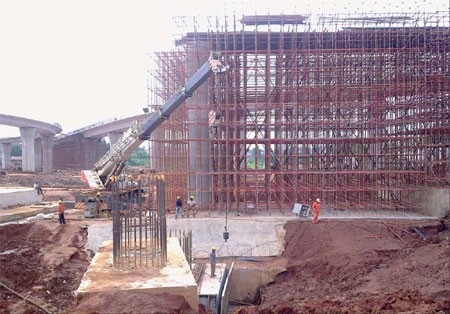All Roads Lead to Beijing China and the Near East
Post on: 16 Март, 2015 No Comment

This week I take a whistle-stop tour of the near east and Chinas relations with the countries in this region, some of which have intriguing international ambitions of their own.
This oil rich state has attracted significant interest from China and bilateral trade has increased to over $1 billion. Azerbaijan also has an active presence in the region and has invested heavily in Turkey, with the state oil company, SOCAR leading the way. The proposed Trans-Anatolian gas pipeline will bring Azeri gas from the Eastern edge of the country from the Shah Deniz field over Turkey, to warm the homes of Europeans, giving this increasingly assertive country more hydrocarbon shaped power beyond its borders.
The Georgian government has a quandary in the form of a proposed $150 million Chinese investment in the capital Tbilisi, the investment will provide housing, firstly for the European Youth Olympics and then for residents of the city, currently more used to crumbling Soviet blocks. However, objections have been made to the idea of large numbers of Chinese immigrants that are mooted to move to the city to complete the construction project. Although this move has been denied by the government, as unemployment is a big concern in the country, as is foreign influence. Chinese firms have already been active in the country building a hydroelectric dam and railway tunnel and further investments are expected to follow.
Thanks to its poor relations with neighbours Turkey and Azerbaijan, the country has been forced to look further afield for trade and has built links with the Europe and the US. The country surprised many when it joined the Russian backed Eurasian free trade zone, favouring it over a proposed EU trade agreement. Ties with China remain weak for now, but the country is sure to build economic bridges to offset its weak position vis-à-vis its neighbours.
Sited in an advantageous geo-political position, Turkey has developed its own foreign policy agenda of rapidly expanding its commercial interests into Africa and the Middle East – forging ties in places like Ghana, Nigeria and even war torn Somalia.Turkey has developed strong ties with China, bi-lateral trade and investment soaring between the two countries which share many characteristics, both are rising powers which have seen their domestic economies boom and their overseas influence expand as a result. The chaos of post-war Iraq left many firms scared of investing in the countries, but intrepid Turkish firms got involved early on and now they are the key players in the fast growing Iraqi economy.
Isolation from US and EU markets thanks to nuclear sanctions has led to the country gravitating towards China which in turn has become a key customer for the country’s main export earner – oil. Iran has also welcomed China’s non-interventionist outlook, chiming with its own dislike of what it views as unwarranted US interference in its internal and external affairs. India has also looked to invest in Iran, putting money, up to $100 million, in the Chahabar free trade zone in the South Eastern part of Iran. By doing so India hopes to extend its regional influence, increase trade with Iran and Central Asia, but also contain and check Pakistani and Chinese influence in the region.














